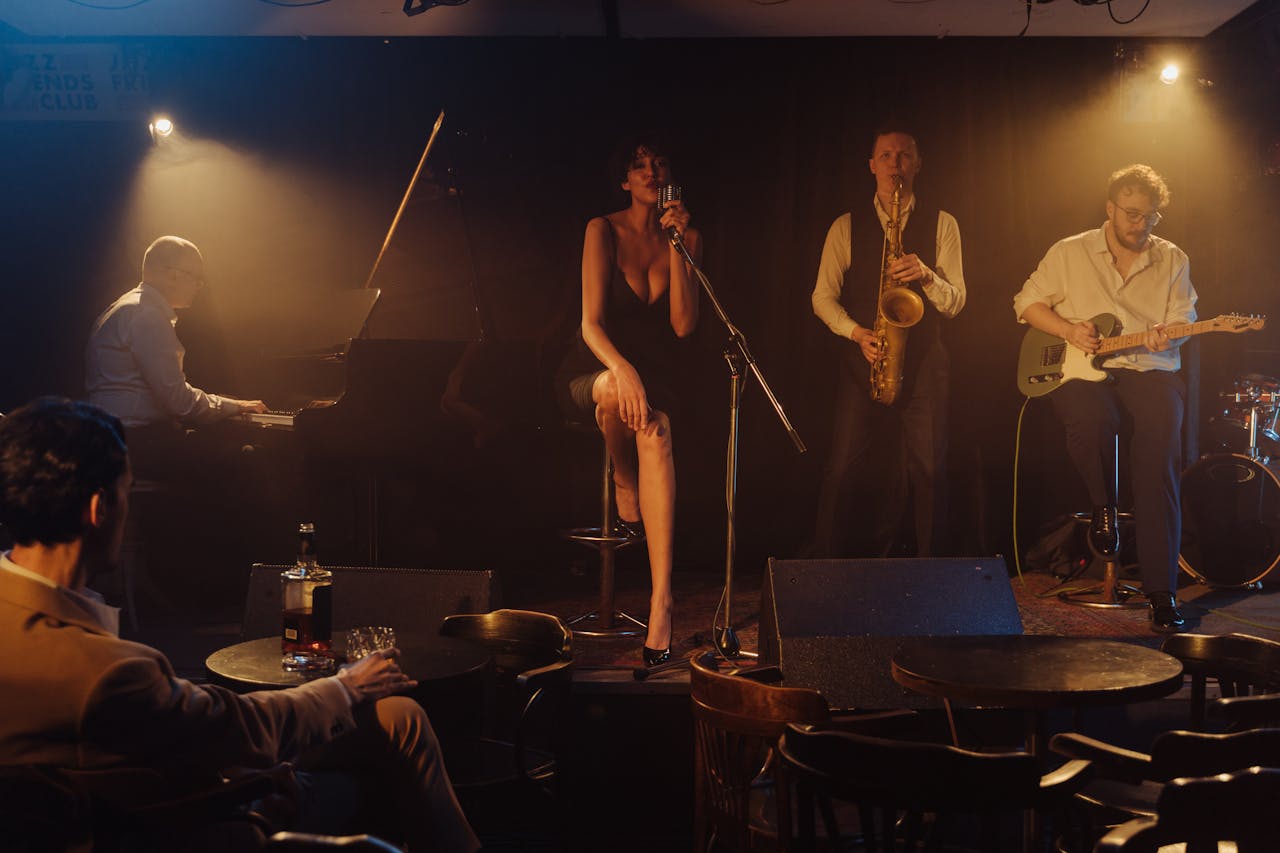As a bar owner, you’re always looking for new ways to increase your income and attract more patrons. One effective strategy that you might have overlooked is introducing live music. Having your own music station and booking live performances can significantly impact your business positively. Not only does it create a lively ambiance that draws in customers, but it also provides an additional stream of income. However, it’s not as simple as just setting up a stage and hiring a band. You must also navigate the legalities of music licensing, the technicalities of sound systems, and the logistics of scheduling performances.
Navigating the Legal Landscape of Music
Before you start booking bands and promoting your new live music nights, you need to understand the legal landscape. When you play music in a public setting such as a bar, it’s considered a public performance. This means you need to obtain a license from a music rights organization like ASCAP (American Society of Composers, Authors, and Publishers) to legally play copyrighted music.
In parallel : What are the top safety protocols for using deep fryers in commercial kitchens?
A single license from ASCAP will grant you access to millions of songs from their vast catalog. But keep in mind, different artists and songs may be licensed under different organizations. To cover all your bases, you may need to secure additional licenses from other organizations like BMI (Broadcast Music, Inc.) and SESAC (Society of European Stage Authors and Composers).
While it might seem like an extra step, securing the appropriate licenses can save you from hefty copyright infringement fines down the line. Plus, it’s a way of supporting the artists whose music adds value to your business.
Also read : How do you balance traditional and modern elements in a restaurant renovation?
Introducing a Music Station
Once you’ve navigated the legal landscape, it’s time to set up your music station. This involves investing in quality sound equipment and hiring a skilled sound technician to ensure the best audio quality during performances.
Additionally, consider developing a mobile application for your bar. This could serve as a portal where customers can view your live music schedule, reserve tables, and even order from your menu. Such an application can enhance your patrons’ experience and make your bar more accessible.
Using a website or a mobile app to promote your live music nights can also drive more traffic to your business. It gives people an easy way to check who’s playing and when, encouraging them to plan their evenings around your events.
Booking Live Performances
Booking live performances is a key part of introducing live music to your bar. You’ll need to work with local bands, musicians, or booking agents to schedule performances. Be sure to consider the tastes and preferences of your clientele when selecting the type of music to feature.
Live music nights can also provide a boost to your income. You can charge a cover fee at the door on music nights, or if you prefer, increase your prices slightly to account for the added entertainment.
Creating a Lively Atmosphere
The addition of live music does more than just bring in additional revenue – it also creates a lively atmosphere that can attract more customers. Music has a way of bringing people together, and live music, in particular, has a unique energy that can’t be replicated by a jukebox or a DJ.
A bar with live music stands out from the competition. It gives people a reason to choose your bar over another. This can lead to an increase in foot traffic, especially on nights when popular local bands are playing.
Maximizing Your Revenue
Finally, you’ll want to think about how you can maximize your revenue from introducing live music. As mentioned earlier, charging a cover fee on music nights is one option. However, there are other methods you can consider.
One way is to offer special promotions or discounts during live performances. For instance, you could offer a drink special that ties into the band’s theme or style. This could encourage customers to spend more money at your bar. Another strategy is to collaborate with local bands or musicians. Offer to sell their merchandise at your bar, and take a small percentage of the sales.
By considering these factors and strategies, introducing live music to your bar can significantly impact your nightly revenue. It might require some work and investment initially, but the potential benefits are well worth it. Live music can transform your bar from a simple watering hole into a vibrant music venue, attracting more patrons and boosting your bottom line.
Leveraging Social Media to Promote your Live Music Nights
In an era where social media platforms are part and parcel of marketing strategies, it is vital to use these platforms to promote your live music nights. Social media can help you reach your target audience in the United States and beyond, with ease and efficiency.
Start by creating event pages on platforms like Facebook, where you can directly engage with your audience, answer questions, and provide updates on the upcoming performances. Share teasers of the performing bands or artists, or snippets of their rehearsals to get your audience excited.
You can also use Instagram, where you can utilize the story feature for real-time updates and behind-the-scenes footage. Regularly posting on your bar’s account about the live music nights, the performing bands, and themed nights can draw in a larger crowd.
Consider partnering with the performing bands or artists. Encourage them to share the event on their social media platforms to reach a wider audience. This partnership not only promotes your event but also builds a relationship with the artists, which can be beneficial in the future.
Remember, engagement is key. Respond to comments, likes, and shares. This interaction shows that you value your customers and are excited to host them. Through social media, you can create a buzz around your live music nights, attract a larger audience, and in turn, increase your revenue.
The Necessity of Music Licensing and Copyright Owners
The legal aspects of introducing live music to your bar go beyond obtaining public performance licenses from music rights organizations. It’s equally important to understand copyright laws and respect the rights of copyright owners.
When a musical work is performed publicly, such as in your bar, royalties are owed to the copyright owner of the work. This is usually the songwriter or the music publisher. The music license you obtain from organizations like ASCAP, BMI, and SESAC allows you to legally perform musical works in your bar and ensures that the copyright owners are paid their due royalties.
However, playing a sound recording of a musical work – like a CD, MP3, or radio – involves an additional layer of copyright. The copyright of the sound recording is often owned by the record label, separate from the copyright of the musical work. In the United States, there’s no general public performance right for sound recordings, except for digital transmissions. This means playing CDs or MP3s at your bar doesn’t typically require a separate license.
Despite this, it’s best practice to ensure you’ve covered all your legal bases. You can do this by purchasing a business license from a music service that includes rights to the sound recordings.
By understanding and respecting the rights of copyright owners, you not only avoid potential legal issues but also support the music industry that your bar directly benefits from.
In Conclusion
Introducing live music to your bar is a strategic move that extends beyond increasing alcohol consumption. It creates an appealing atmosphere, sets your bar apart from others, and draws more patrons. Leveraging social media for promotion and understanding music licensing are vital steps in this process.
While the initial process might seem daunting, the benefits are far-reaching. Besides increased footfall and revenue, your bar transforms into a vibrant venue that supports and celebrates live music. Remember to engage with your audience, both in person and online, respect the rights of copyright owners, and above all, provide a fantastic musical experience. By doing this, your bar could become not only a favorite watering hole but also a revered musical hub.






